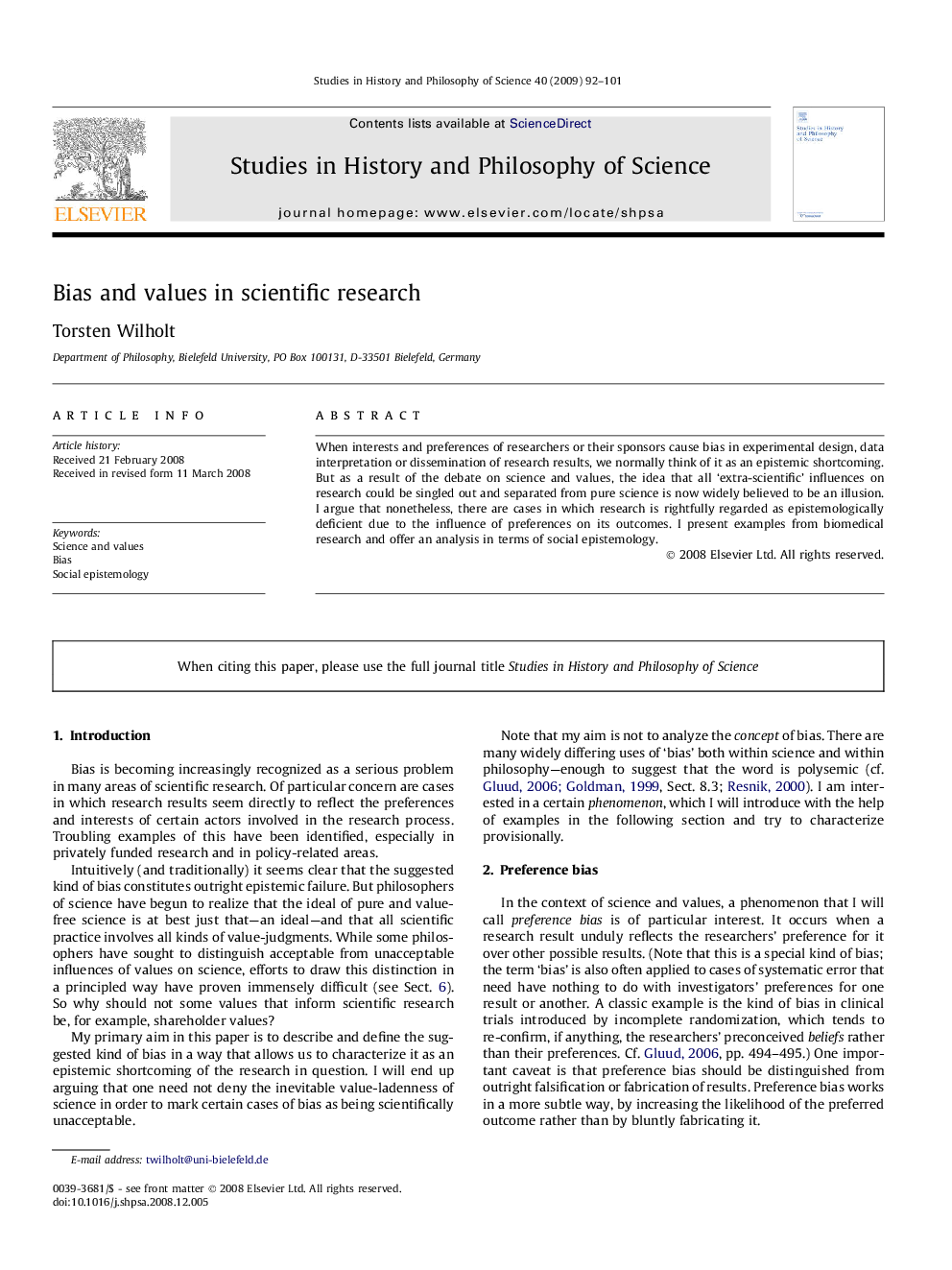| Article ID | Journal | Published Year | Pages | File Type |
|---|---|---|---|---|
| 1160380 | Studies in History and Philosophy of Science Part A | 2009 | 10 Pages |
Abstract
When interests and preferences of researchers or their sponsors cause bias in experimental design, data interpretation or dissemination of research results, we normally think of it as an epistemic shortcoming. But as a result of the debate on science and values, the idea that all ‘extra-scientific’ influences on research could be singled out and separated from pure science is now widely believed to be an illusion. I argue that nonetheless, there are cases in which research is rightfully regarded as epistemologically deficient due to the influence of preferences on its outcomes. I present examples from biomedical research and offer an analysis in terms of social epistemology.
Related Topics
Social Sciences and Humanities
Arts and Humanities
History
Authors
Torsten Wilholt,
